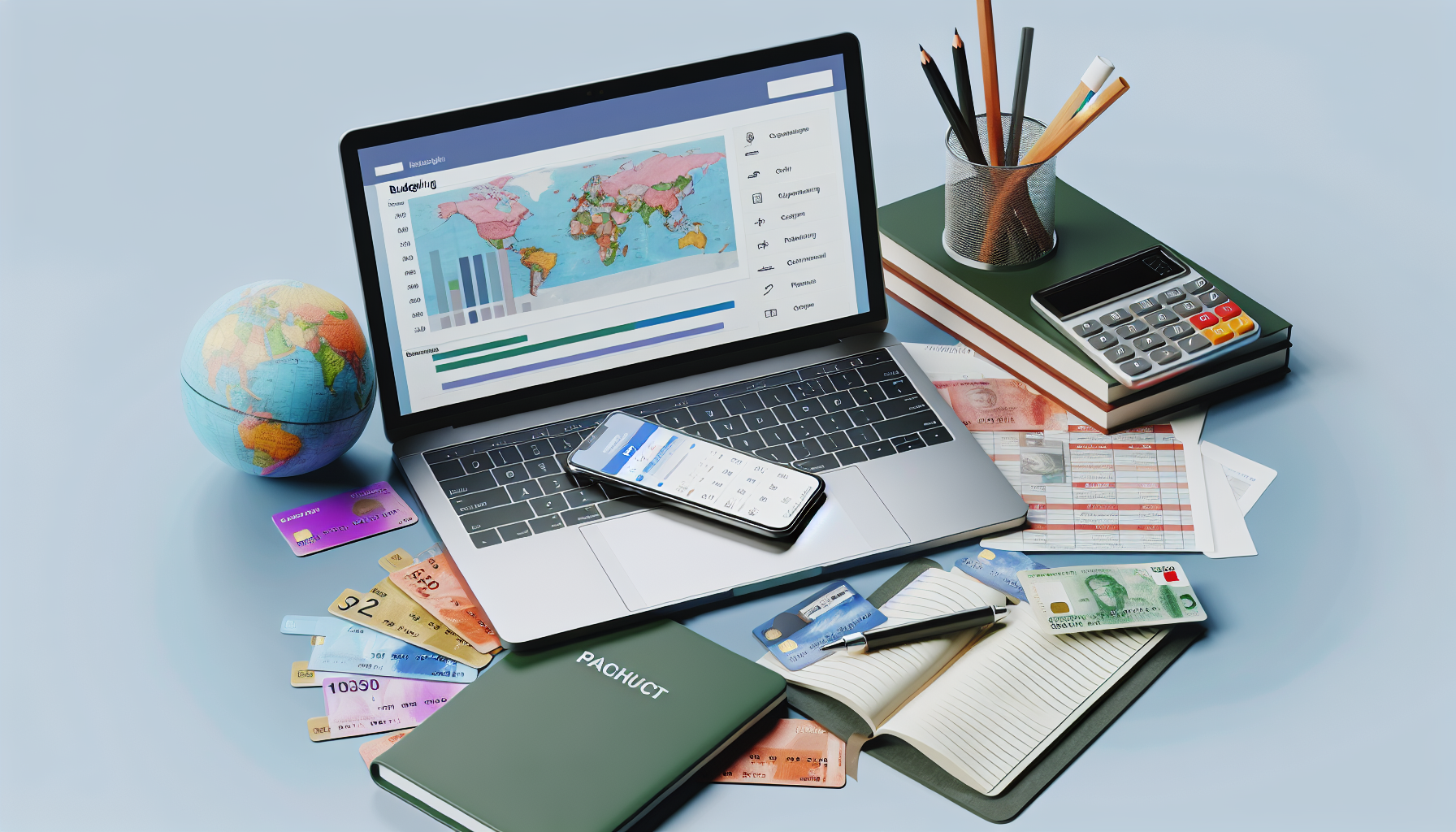How These Digital Nomads Manage Their Finances While Traveling the World
Imagine waking up in Bali, working from a café in Prague, and spending your weekends exploring the wilderness of Patagonia—all while earning a steady income. Sounds like a dream, right? Welcome to the world of digital nomads. But, as with all dreams, there’s a practical side that often goes unseen. How do these modern-day wanderers manage their finances while globe-trotting? Let’s dive into the financial strategies of digital nomads and discover how they keep their bank accounts as healthy as their Instagram feeds.
Key Takeaways
- Budgeting: Essential for managing expenses in varying cost-of-living environments.
- Income Strategies: Freelancing, remote work, and side gigs provide multiple income streams.
- Expense Management: Using financial apps and multiple currencies wisely.
- Investments: Digital nomads invest in stocks, real estate, or cryptocurrencies.
- Emergency Funds: Crucial for unexpected travel or medical expenses.
Budgeting for Different Locales
Digital nomads often find themselves in countries with vastly different cost-of-living standards. Whether you’re brunching in Tokyo or trekking through Thailand, budgeting is key. Knowing how much you need to cover rent, food, transportation, and leisure activities in each locale can help stretch your income further.
Example: Jacob, a 29-year-old graphic designer, uses apps like Numbeo to compare living costs in various cities before planning his next move. “I always set aside a fixed percentage of my income and have an Excel sheet for every place I might visit,” he explains.
Diversifying Income Streams
Freelancing, remote work, and side gigs are the bread and butter for many digital nomads. These varied income streams not only provide financial stability but also ensure that they are never reliant on a single source.
Expert Quote: “Diversifying your income streams is not just smart; it’s essential for anyone who operates without a fixed location,” says financial advisor Lisa Norton.
Managing Expenses with Financial Apps
Living across the globe often means dealing with multiple currencies and banking systems. Financial apps such as Revolut and TransferWise allow digital nomads to manage their money easily, no matter where they are.
Example: Sarah, a content writer traveling through Europe, relies on Revolut for currency exchange and to avoid foreign transaction fees. “It’s like having a local bank in every country,” she says.
Quote: “Digital banking is the future for remote workers and travelers,” according to fintech analyst Mark Weaver. “It offers flexibility and control that traditional banks can’t.”
Investment Strategies
Many digital nomads also engage in investing as a way to secure their financial futures. Stocks, real estate, or cryptocurrencies can offer good returns, although they come with their own set of risks.
Tip: Setting up a portfolio that aligns with your financial goals and risk tolerance can provide a reliable income source while you travel.
Emergency Funds: A Safety Net
Having an emergency fund is crucial for those living a nomadic lifestyle. Whether it’s an unexpected travel necessity or a sudden medical emergency, having a financial cushion can be the difference between a minor hiccup and a major crisis.
Example: Emma, an SEO specialist, sets aside 6 months’ worth of living expenses in a separate savings account. “I can handle a slow month without stressing about how I’ll pay the bills,” she notes.
Comparison Table of Financial Tools
| Financial Aspect | Traditional Solution | Modern App/Tool | Benefits |
|---|---|---|---|
| Currency Exchange | Bureau de Change / Banks | Revolut / TransferWise | Lower fees, better rates |
| Budgeting | Spreadsheets or Ledgers | YNAB / PocketGuard | Real-time tracking, automated insights |
| Investing | Stock Broker | Robinhood / E*TRADE | Lower commissions, user-friendly |
| Banking | Local Banks | N26 / Chime | International access, fewer fees |
| Expense Tracking | Receipts, Notes | Expensify / Mint | Automated, categorized expenses |
Living or Experiential Tips
- Pre-plan Destinations: Knowing the cost of living before arriving can help with budgeting and avoiding financial stress.
- Save on Accommodations: Use services like Airbnb or house-sitting platforms to find budget-friendly, comfortable lodging.
- Network with Other Nomads: Join online communities where useful tips and job opportunities are frequently shared.
- Use Local Payment Methods: In some countries, using local payment apps can save on transaction fees.
- Stay Insured: Travel and health insurance tailored for nomads are worthwhile investments.
Ensuring financial health while trotting the globe can sound daunting, but with the right tools and strategies, it’s entirely manageable. Interested in learning more? Check out additional resources on budgeting for travelers or investing while living abroad.
Source Links:
FAQ
Q: How much should I save before becoming a digital nomad?
A: It’s advisable to have at least 3-6 months’ worth of living expenses saved up as a security buffer.
Q: What are the best banks for digital nomads?
A: Digital banks like Revolut, N26, and TransferWise are highly recommended for their low fees and ease of use across different countries.
Q: How do digital nomads handle taxes?
A: It’s essential to consult a tax professional who understands international tax laws to ensure you’re compliant with the regulations of both your home country and the countries you travel to.
